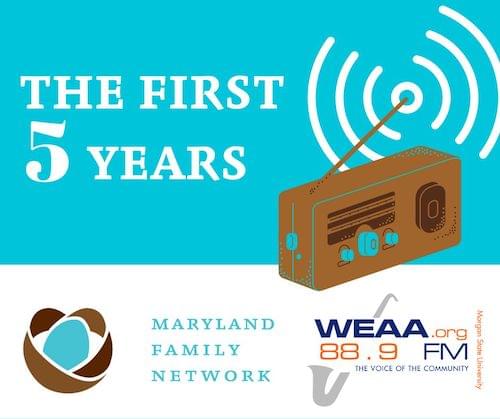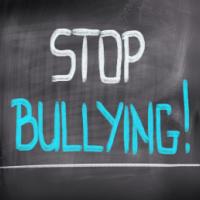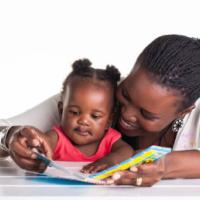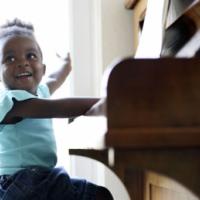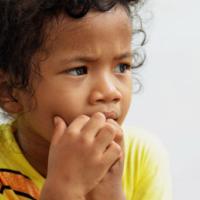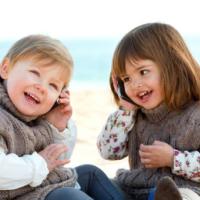Bullying can start in the early years—even before school. Young children might call names, act out physically, or intimate others. Listen to learn tips aimed at helping parents and caregivers prevent bullying early and to keep it from escalating.
Resources
For more than two decades, experts have recognized the importance of early exposure to a language-rich environment. By age three, children from low-income families hear far fewer words than their more affluent peers—nearly 30 million fewer words. This disparity puts poorer children at a huge disadvantage when starting school. But now a Temple University study suggests that exposing low-income children to more language isn't enough to overcome this difference. The researchers report that the quality of communication among children, parents and other caregivers is of more importance that just the number of words.
Resources
The Thirty Million Word Gap (Rice University)
Bridging the Vocabulary Gap (NAEYC)
What does it take for parents to build a secure attachment with their child? Find out this week as we welcome Dr. Marti Erickson as guest host of The First Five Years. Retired from the University of Minnesota and now co-host of the weekly parenting show Mom Enough, Dr. Erickson specializes in linking research, practice and policy in the areas of parent-child attachment, child abuse prevention and children's mental health.
Resources
If you could change the lives of millions of children and families for the better, in a matter of just minutes, would you do it?
Resources
New research from Northwestern University will be music to your ears. They found that after two years of musical training, the brain function of at-risk youth improved significantly. What's more, this research could hold the key to reducing the achievement gap. Listen now to learn more.
Resources
Music Resources (NAEYC)
This is Your Brain on Music (NPR)
Just under half of the children in the United States have lived through at least one traumatic experience. These experiences have lasting effects on health, social and economic outcomes in adulthood. But there is hope. Listen to find out how you can help.
Resources
Nearly 35 million U.S. children have experienced one or more types of childhood trauma (ACEs Too High News)
Injury Prevention and Control: Division of Violence Prevention (Centers for Disease Control and Prevention)
Nightmares can be triggered by a number of things. It's important to take the time to listen and comfort your child as she experiences this important but sometimes scary milestone.
Resources
Sleep Nightmares (Zero to Three)
Anxiety is a normal part of life, even for young children. It's especially common when children are separated from parents for the first time. But for some children the symptoms continue and may get worse. Find out what you need to look for to make sure your child's anxiety isn't interfering with her development and happiness.
Resources
Separation Anxiety (The Mayo Clinic)
Anxiety and Anxiety Disorders in Children: Information for Parents (National Association of School Psychologists)
It won't be long until your preschooler is ready to start kindergarten. This can be challenging for both children and parents. Start planning now to help make the transition a smooth one.
Resources
Terrific Transitions: Supporting Children's Transition to Kindergarten (SERVE Regional Educational Laboratory & the National Head Start Association)
12 Ways to Help a Child Make the Transition to Kindergarten (Harvard Medical School)
Parents want to help children grow up to feel confident and secure. But the markers of social competency in young children can be hard to spot. But there are signs to look for. Listen now to find out more.
Resources
Development of Social-Emotional Skills (Zero to Three)
Helping Young Children Succeed: Strategies to Promote Early Childhood Social and Emotional Development (Zero to Three)


